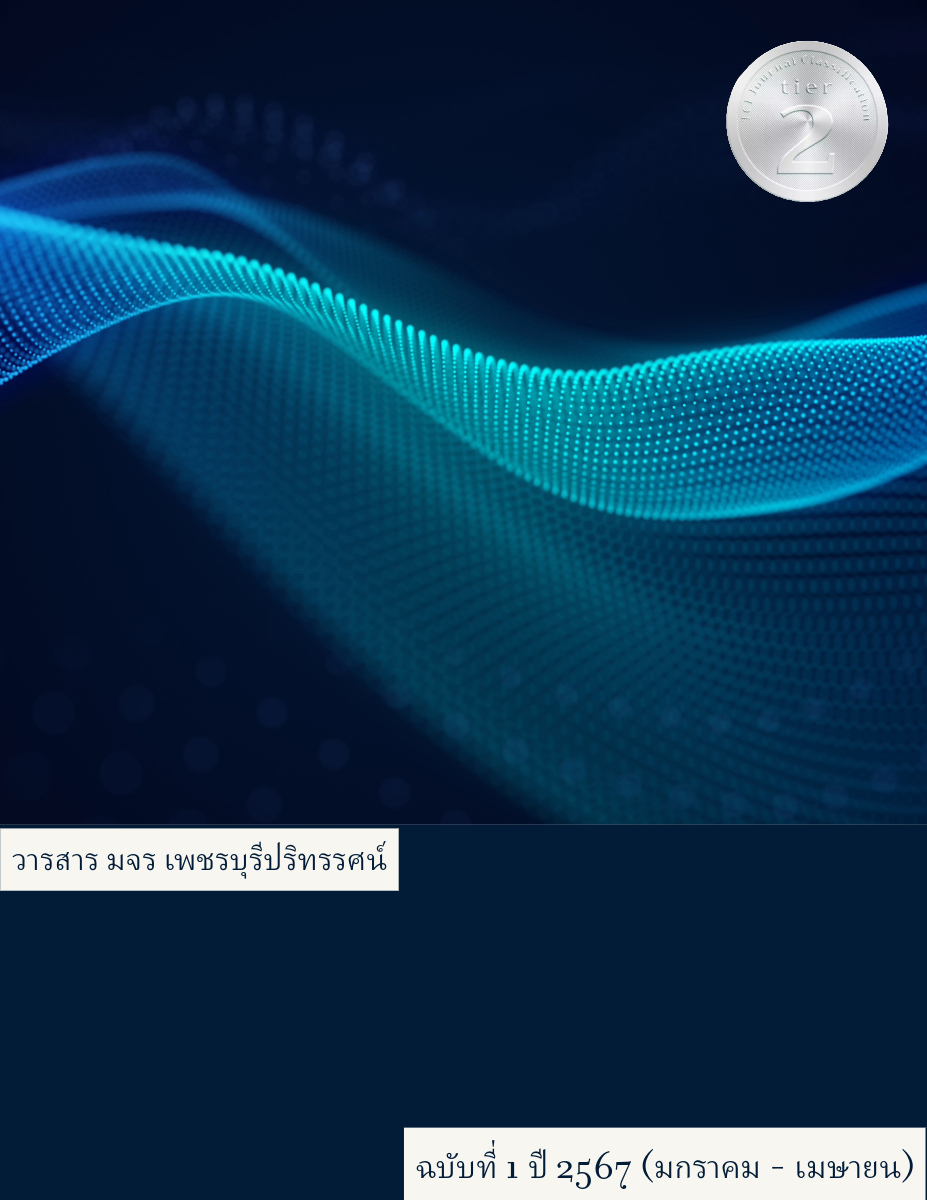Enhancing Math Problem Solving Skills and Working Memory of Grade 3 Students using a Problem-based Learning Method Together with the Application of Abstract Code Model
Main Article Content
Abstract
This research is a quasi-experimental research aimed to compare average math problem solving skills before and after using for enhancing math problem solving skills and working memory compare average working memory before and after using for enhancing math problem solving skills and working memory and compare average math problem solving skills and working memory after the experiment when classified according to the use of problem-based learning methods using abstract code models and problem-based learning method together with the application of abstract code model. The sample group consisted of 118 students in Grade 3, semester 1, academic year 2023, from 6 schools in the Tawan Burapha group. It is obtained by multi-stage random Sampling. Data were analyzed by using Paired Sample t-test, One-Way MANOVA and One-Way ANOVA,
Research findings were as follows.
- The mathematical problem solving skills of grade 3 students after using the learning method for enhancing math problem solving skills and working memory were higher than before using the learning method for enhancing math problem solving skills and working memory.
- Working memory of grade 3 students after using the learning method for enhancing math problem solving skills and working memory were higher than before using the learning method for enhancing math problem solving skills and working memory.
- The mathematical problem solving skills and working memory of grade 3 students in the experimental group after use of problem-based learning methods using abstract code models and problem-based learning method together with the application of abstract code model were different.
Keywords : Math problem solving skills, Working memory, Problem-based learning, Application of abstract code models, Problem-based learning methods together with the application of abstract code models.
Article Details

This work is licensed under a Creative Commons Attribution-NonCommercial-NoDerivatives 4.0 International License.
References
กษมา เกิดประสงค์. (2560). การพัฒนาโปรแกรมเสริมสร้างสมรรถนะทางคณิตศาสตร์ของนักเรียนระดับชั้น
มัธยมศึกษาปีที่ 2. วารสารมนุษยศาสตร์และสังคมศาสตร์ มหาวิทยาลัยมหาสารคาม, 39(2), 109-110.
กัญจน์วิภา ใบกุหลาบ และ สุวรรณา จุ้ยทอง. (2562) ผลการจัดกิจกรรมการเรียนรู้โดยใช้ปัญหาเป็นฐานที่มีต่อ
ความสามารถในการแก้ปัญหาทางคณิตศาสตร์และผลสัมฤทธิ์ทางการเรียนคณิตศาสตร์ เรื่อง สมการ
ของนักเรียนชั้นประถมศึกษาปีที่ 6. มหาวิทยาลัยราชภัฏวไลยอลงกรณ์ ในพระบรมราชูปถัมภ์: ม.ป.ท.
เทวินทร์ สินธุมัด. (2565). ผลของการฝึกความจำขณะทำงานที่มีต่อความคิดสร้างสรรค์ของนักเรียนชั้น
ประถมศึกษาปีที่ 2. วารสารบัณฑิตศึกษา มหาวิทยาลัยราชภัฏสกลนคร, 19(87), 174.
วิไลรัตน์ ชูช่วย. (2558). ผลของการจัดการเรียนรู้ตามรูปแบบการต้อบทเรียนและรูปแบบการจัดกลุ่มแบบช่วย
รายบุคคลที่มีต่อผลสัมฤทธิ์ทางการเรียนวิชาคณิตศาสตร์ของนักเรียนชั้นประถมศึกษาปีที่ 3. วารสาร
เทคโนโลยีภาคใต้, 8(1), 55.
Edmond, W. A., & Kennedy, T. D., (2017). An Appalled Reference Guide to Research Designs Quantitative,
Qualitative, and Mixed Methods. Far East Square Singapore: Sage Publications.
McCloskey, M. (1992). Cognitive mechanisms in numerical processing: Evidence from acquired
dyscalculia. Cognition, 44(1-2), 107-157.
S Triyani, I K Budayasa & S M Amin. (2018). Designing Task to Support Student’s Creative Thinking
Process In Problem Solving Of Fraction In Elementary School.


